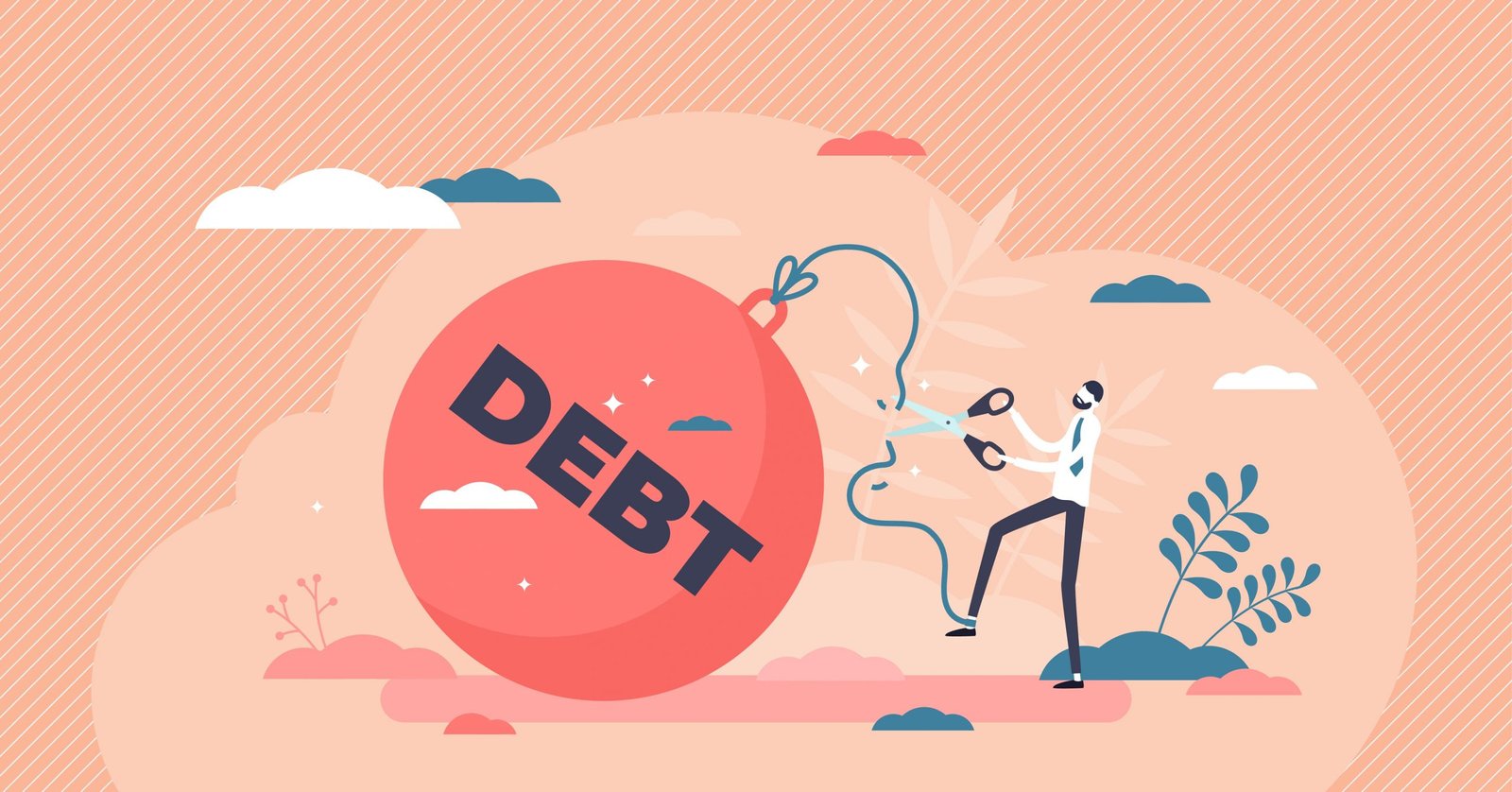Debt consolidation is a financial strategy that combines multiple debts into a single, manageable payment. It’s often used to simplify finances, lower interest rates, or reduce monthly payments. This guide explains how debt consolidation works, its advantages, and its potential disadvantages, helping you decide if it’s the right solution for your financial situation.
What Is Debt Consolidation?
Debt consolidation merges multiple debts into a single loan or payment plan. Instead of juggling various payments and due dates, you focus on one consolidated amount. Common types of debt consolidation include:
- Personal Loans: Borrow a fixed amount to pay off existing debts.
- Balance Transfer Credit Cards: Transfer high-interest credit card balances to a card with a lower rate.
- Home Equity Loans or Lines of Credit: Use home equity to consolidate debts.
- Debt Management Plans (DMPs): Work with a credit counseling agency to create a structured repayment plan.
How Does Debt Consolidation Work?
- Assess Your Debts: List all outstanding debts, including balances, interest rates, and minimum payments.
- Choose a Consolidation Option: Select the method that best fits your financial situation and goals.
- Apply for Consolidation: If approved, use the funds or new account to pay off your existing debts.
- Make Monthly Payments: Focus on repaying the consolidated loan or plan while avoiding new debt.

Pros of Debt Consolidation
1. Simplifies Payments
Consolidating debt replaces multiple payments with one, making it easier to track and manage.
2. Potential for Lower Interest Rates
Debt consolidation loans or balance transfer cards often offer lower interest rates than credit cards or payday loans.
3. Reduces Monthly Payments
Extending the repayment period can lower monthly payments, improving cash flow.
4. Improves Credit Score
Timely payments on the consolidated loan can boost your credit score over time.
5. Less Stress
Managing a single payment reduces financial stress and improves your focus on repayment goals.
Cons of Debt Consolidation
1. May Not Save Money
If the new loan has fees or a higher interest rate, consolidation might not reduce overall costs.
2. Risk of Accumulating More Debt
Consolidation doesn’t address spending habits. Without discipline, you may accumulate new debt.
3. Extended Repayment Period
Lower monthly payments often mean a longer loan term, increasing total interest paid over time.
4. Credit Score Impact
Applying for a new loan or card may result in a temporary credit score dip due to a hard inquiry.
5. Collateral Risk
Using secured loans, like home equity loans, puts assets at risk if you fail to repay.
Is Debt Consolidation Right for You?
Consider Debt Consolidation If:
- You have high-interest debt and can secure a lower rate.
- You struggle to keep up with multiple payments.
- You’re committed to avoiding new debt and improving financial habits.
Avoid Debt Consolidation If:
- You can’t secure favorable terms.
- You lack steady income to repay the new loan.
- Your debt stems from ongoing overspending habits.
Alternatives to Debt Consolidation
- Debt Snowball Method: Focus on paying off smaller debts first.
- Debt Avalanche Method: Target high-interest debts to save money over time.
- Credit Counseling: Seek professional advice for budgeting and repayment plans.
- Debt Settlement: Negotiate with creditors to reduce the amount owed.
- Bankruptcy: Consider as a last resort for overwhelming debt.
Tips for Successful Debt Consolidation
- Review Terms Carefully: Ensure the interest rate, fees, and repayment period align with your goals.
- Create a Budget: Stick to a plan to avoid accumulating new debt.
- Avoid Overspending: Resist the urge to use credit after consolidating debt.
- Automate Payments: Set up automatic payments to avoid late fees.
Conclusion
Debt consolidation can be a powerful tool for managing and reducing debt, but it’s not a one-size-fits-all solution. Weigh the pros and cons carefully, and assess your financial habits and goals. By choosing the right approach and staying disciplined, you can take control of your finances and work toward a debt-free future.











One thought on “How Debt Consolidation Works: Pros and Cons”
Comments are closed.